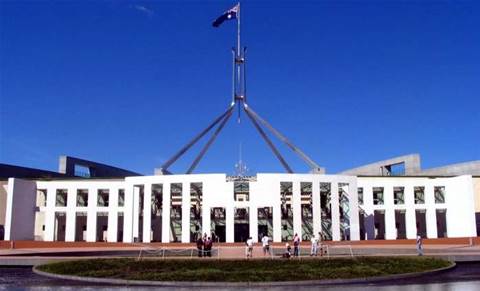The parliamentary inquiry into IT pricing in Australia stepped up a gear today with the three vendors at the centre of the storm fronting a series of public hearings in Canberra.
Apple, Microsoft and Adobe have faced intense scrutinty the past year regarding the prices they charge Australian consumers and businesses. All three had resisted attempts to bring them before a public hearing, opting instead to deliever prepared submissions. All three were ubpoenaes last month.
Apple was the first of the three to appear today, followed by Adobe while Microsoft was preparing to deliver its response at the time of publication.
Under questioning, Apple's reclusive local managing director, Tony King, defended its practises and affirmed that price competition exists in the Australian market.
One of the architects of the inquiry, Labor member for Chifley, Ed Husic, asked King if Australian resellers are able to set their own prices for Apple-branded hardware and soft goods.
“Our partners are free to set their own prices, and we see competitive pricing every day in the channel,” King responded.
King said Apple has 6000 retail partners in Australia. He added that while the computing giant is very particular about the presentation and advertising of its products, the actual price charged to end users is in the hands of the resellers.
A straw poll by CRN of a handful of Apple resellers found little variation between their advertised price and the price quoted at the official Apple online store. No resellers were willing to comment for the record, however one stated they have permission to match prices.
This statement gels with what King said before the Inquiry, saying Apple’s official retail stores, of which there are 18, along with Apple partners, are subject to an official price matching policy.
On music
King was repeatedly questioned about the pricing differential on music, television programs and movies sold through the Australian iTunes store.
Stephen Jones, member for Throsby, asked King why US consumers, and consumers in some other jurisdictions, pay up to 30 percent less for identical music products.
King compared Apple’s iTunes store to bricks and mortar retailers such as JB Hi-Fi and others, and said the wholesale price of music is set by labels, and not by the retailers. Apple’s take on top of the wholesale price, he added, is identical from country to country.
“We’d love to see lower prices for music and movies,” remarked King. “However, I am not the labels.”
Adobe response a pup
Adobe’s local MD, Paul Robson, may as well have used the old childhood diversionary tactic of 'Look! There's a puppy!" when he fronted the inquiry.
When asked why the price of Adobe Creative Suite was 37 percent higher in Australia than the US, Robson refused to directly address the question. Instead, he tried to divert the Inquiry towards Adobe’s Creative Cloud.
“The price of Creative Cloud is largely the same in Australia as it is in the United States,” Robson said.
Robson was asked by Husc why Australian customers can’t access the lower US price for Adobe’s products, given the fact the products are largely the same.
Robson replied customers can access the US price, so long as they are willing to go to the US to get the product. “Why can’t they download the product for the same price?” shot back Husic. “They can go online and use Creative Cloud,” replied Robson.
There’s that puppy again.
What also became clear from the inquiry was the relative lack of understanding of the businesses brought before the committee. Paul Neville, member for Hinkley, asked Robson about Adobe's sales of music and video products.
Robson shot back that Adobe doesn't sell music or videos. Underterred, Neville asked Robson about hardware. "Again, we don't sell hardware," said Robson.
The inquiry continues.





_(21).jpg&h=142&w=230&c=1&s=1)
.jpg&h=142&w=230&c=1&s=1)
.png&h=142&w=230&c=1&s=1)





.jpg&w=100&c=1&s=0)








_(1).jpg&q=95&h=298&w=480&c=1&s=1)


